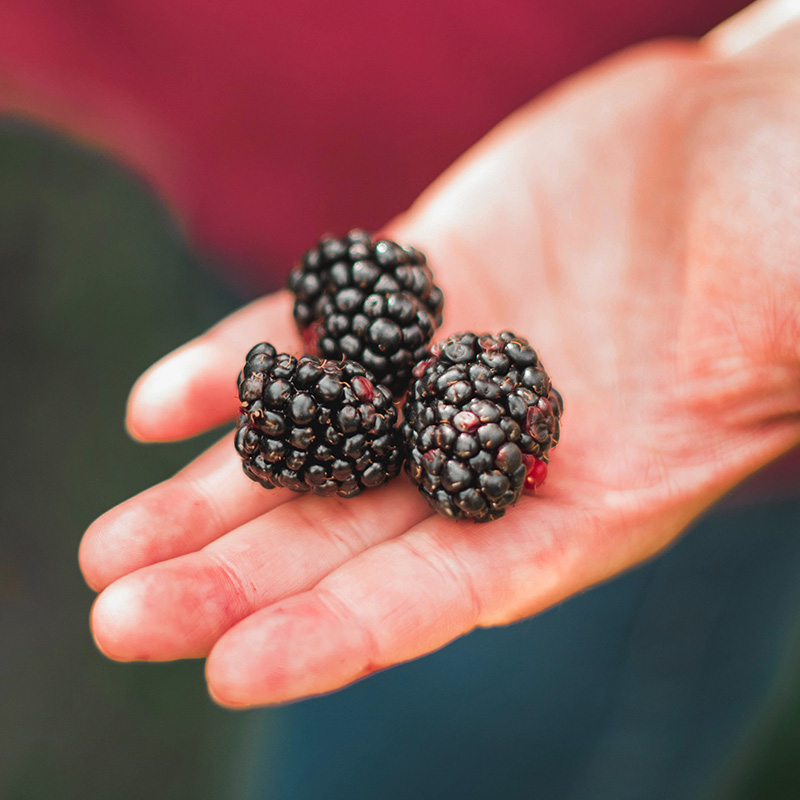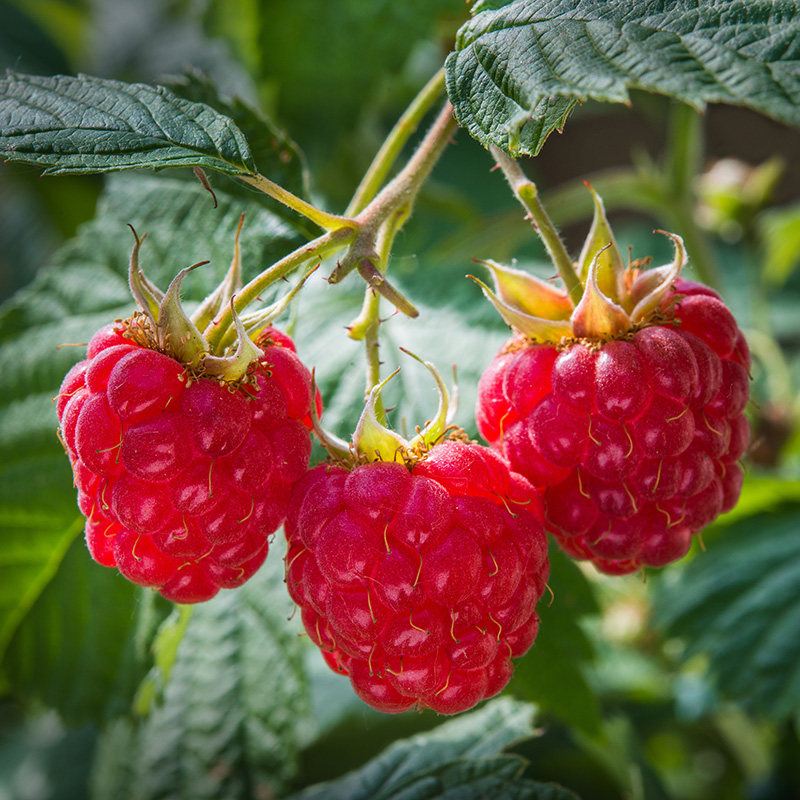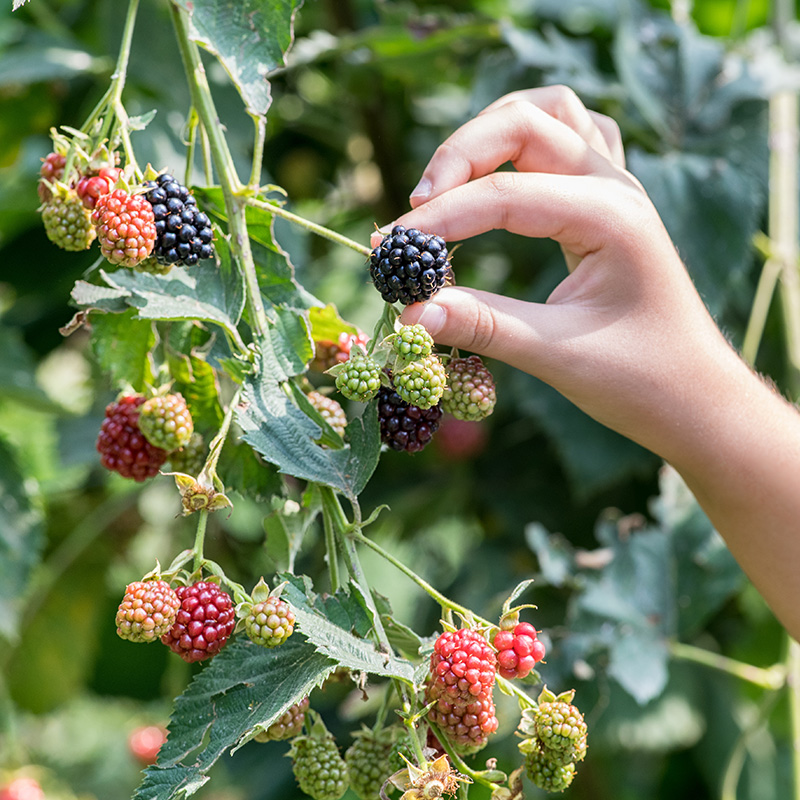Raspberry & Blackberry Home Gardening
grow the best berries
Does walking out to the garden for a handful of just-picked raspberries or blackberries for your breakfast cereal appeal to you? Or perhaps you are interested in filling your freezer with berries you can eat all year long? Blackberries and raspberries take little space in a garden and start to bear fruit the second year after planting. There are numerous berry cultivars with exceptional flavor and hardiness that are perfect for home gardens.


location matters
When choosing raspberry or blackberry plants for your garden, it is a good practice that you start by checking the USDA Plant Hardiness Zone Map. The University Extension offices in your county or state may also have recommendations for the varieties that grow best in your area. Expand your search to other nearby states if you don’t have good information more locally.
Expert advice
Below are links to selected on-line home-garden Extension resources from various states. Most of these are applicable to a wider area than the state where they were published.
Some nurseries also provide detailed planting and care information on their websites. An online search will also turn up lots of other information, including YouTube videos, but be aware that the quality and reliability of information is variable and information may not be applicable to your area.

Online Resources
- Cornell Guide to Growing Fruit at Home (New York)
- Growing Brambles in the Home Garden (New York)
- Brambles in the Home Fruit Planting (Pennsylvania)
- Growing Raspberries and Blackberries (Maine)
- Small Fruit in the Home Garden (Virginia)
- Blackberries for the Home Garden (North Carolina)
- Raspberries in the Home Garden (North Carolina)
- Home Garden Raspberries and Blackberries (Georgia)
- Growing Blackberries and Raspberries in Kentucky
- Blackberries in Florida
- Growing Blackberries in Your Home Garden (Oregon)
- Growing Raspberries in Your Home Garden (Oregon)
- Raspberries for the Home Garden (Colorado)
- Blackberry and Raspberry Culture for the Home Garden (Oklahoma)
- Growing Berries in Your Backyard (California)
